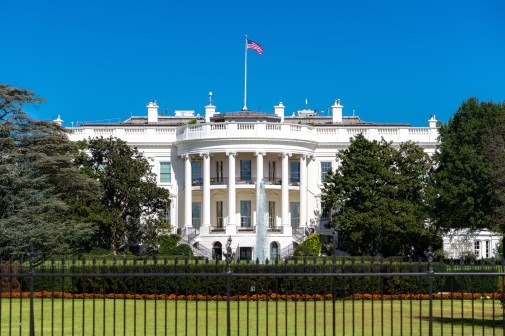OMB, Treasury finalize standards for DATA Act
The White House’s Office of Management and Budget announced Monday that after more than a year of discussion, all 57 data standards related to the Digital Accountability and Transparency Act have been finalized.
In a White House blog post, OMB Controller and acting Deputy Director for Management David Mader and Commissioner of the Treasury Department’s Financial Management Service David Lebryk called the standards decree a “key milestone” in making sure the public eventually has a transparent way to track government spending.
“Providing clear and consistent, or standard, information on how taxpayer dollars are spent is a critical component to a transparent democracy and open government that drives opportunity, economic growth and innovation,” the blog post reads.

A list of the 57 data elements to be included on USASpending.gov as part of the DATA Act. (GAO)
Twenty-seven standards were already agreed upon as of July 10, with another 30 open for comment on the act’s GitHub page over the past few weeks. These data points will be part of the law that requires agencies to make their financial, budget, payment, grant and contract data interoperable when published to USASpending.gov, the federal government’s hub of publicly available financial data, by May 9, 2017.
Yet even with the process finalized, some groups are calling foul on the way the government reached its final decision.
The Data Transparency Coalition, a technology-based nonprofit, released a statement Monday applauding the government’s overall work, yet took exception to the fact the DUNS number is the favored, governmentwide identifier for recipients of federal funds. DUNS numbers are nine-digit identifiers privately owned by the company Dun & Bradstreet Inc. that users must pay for to view corresponding business information.
“Treasury and OMB did, indeed solicit electronic input on all 57 data fields on the GitHub web platform. But it isn’t clear that they took this input into account,” the statement says. “Notably, Treasury and OMB chose to adopt the proprietary DUNS Number as the favored, government-wide identifier for recipients of federal funds – even though every GitHub comment said they shouldn’t.”
The coalition also took issue with the transparency of the government’s Section 5 pilot program, a two-year test at the Department of Health and Human Services that focuses on the grant portion of the DATA Act.
“The DATA Act requires OMB (or its designee) to recruit recipients and invite them to submit their official reports in electronic formats consistent with the DATA Act standards,” the statement reads. “This crucial step has not yet been taken. The national dialogue OMB has announced falls far short of a real pilot program.”
In the White House blog post, Mader and Lebryk wrote that while the data standards have been finalized, there is room to change things if needed.
“Moving forward, we will also continue to engage our stakeholders as we work to implement these standards, develop a process to periodically review and, if necessary, update these standards, and work with recipients of federal funds to identify opportunities to streamline recipient reporting burden,” the post says.




